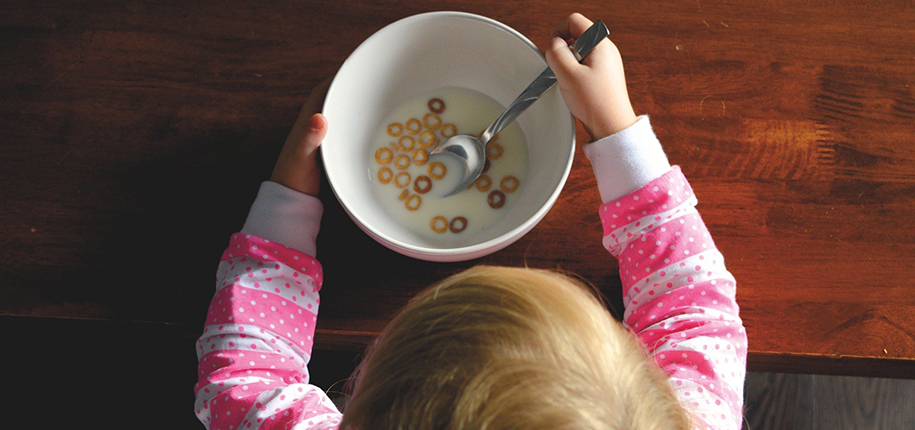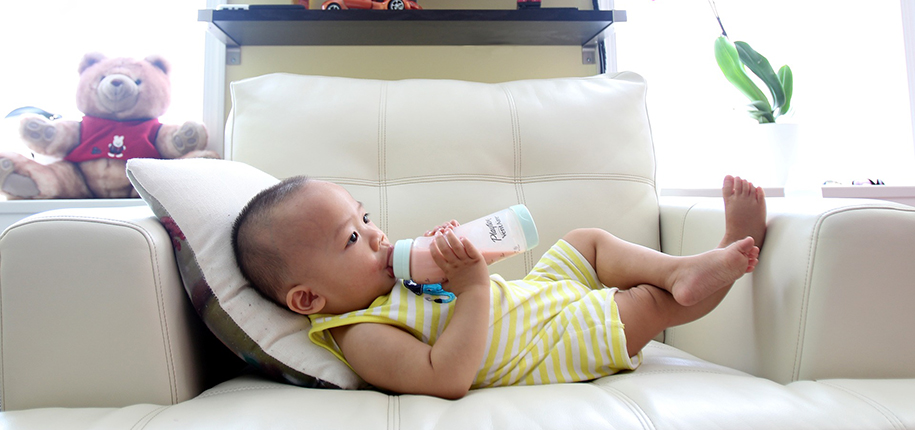
We know it can be challenging when your child needs extra tests; they may need blood work, x-rays, ultrasound imaging, or an appointment for a specialist. But does your child really have to skip breakfast or fast overnight in addition? Well, sometimes they do.
Just as important as it is to make time to care for your child’s health, it may be equally important that your child fast or skip a meal before certain tests. In the case of ultrasound tests, most babies only need to skip one bottle feeding before the test and then they can be fed a bottle of formula or breast milk during the exam to keep them happy and relatively still for our images. Bringing a bottle from home and feeding your baby during the ultrasound test will help us to get the best images possible, without motion blurring important structures. And while your baby will be preoccupied with eating, the test will seem less strange or scary to them.

Photo: No bottle feeding before the exam.
For children who are having their gallbladder imaged as part of an abdominal ultrasound, fasting is necessary to help the gallbladder fill up with bile, which makes gallstones or biliary tree abnormalities easier to detect. For right upper quadrant ultrasound exams or abdominal ultrasound exams, fasting times vary from 4 hours for babies to 8 hours for children older than 9 years. For some other exams using Doppler to look at blood flow in the abdomen or using ARFI to test the elasticity of the liver, fasting instructions are also given. The scheduling center will give you specific instructions about fasting based on the type of ultrasound your child is having.
Children who are having kidney (renal) ultrasound or pelvic ultrasound need to be well hydrated, preferably with their bladder filled with urine. Of course, children who are not “potty trained” are not expected to hold their urine, but other children should try to keep their bladders filled until a few ultrasound images are recorded. Then your child will be escorted to a nearby bathroom where they can urinate. The scheduling center will give you specific instructions about how much fluid you should encourage your child to drink prior to renal or pelvic ultrasounds. If your child’s bladder is uncomfortably “full” when you first check-in at the Radiology desk, please let us know so we can try to get your child’s exam started ASAP.
Helping your child prepare for the ultrasound or other imaging tests will help us get the best images possible, which in turn gets your child the best care that Cincinnati Children’s can offer.
Dr. Sara O’Hara, author; Meredith Niese, editor; Meredith Towbin, copyeditor
